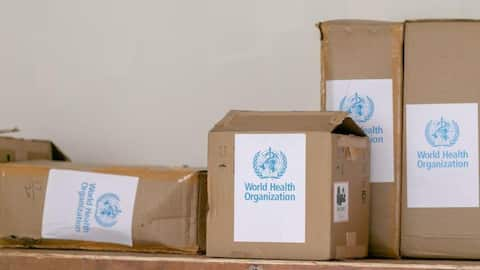WHO honors nations for eliminating industrially produced trans fats
What's the story
The World Health Organization (WHO) has recently granted first-ever certificates recognizing significant strides in the elimination of industrially produced trans fatty acids (iTFA) to five countries, Denmark, Lithuania, Poland, Saudi Arabia, and Thailand. These nations have been acknowledged for implementing exemplary policies aimed at eradicating iTFA. Let us learn more about this development, exploring what are iTFA and why are they harmful.
2023 's unmet goal
Notable progress
Although WHO's 2018 goal to eliminate industrially produced trans fatty acids (iTFA) globally by the end of 2023 was not achieved, significant progress has been observed in various regions. In 2023, seven countries (Egypt, Mexico, Moldova , Nigeria, North Macedonia, Philippines, and Ukraine) successfully implemented new best-practice policies toward iTFA elimination, reflecting ongoing efforts to reduce the impact of trans fats on communities worldwide.
Harmful effects
TFA and why are they harmful?
Trans-fatty acids (TFA) exist in two forms: industrially produced and naturally occurring, manifesting as semisolid to solid fats. Consumption of TFA is linked to elevated risks of heart attacks and heart disease-related fatalities. Foods rich in industrially produced TFA, such as fried foods, cakes, and ready meals, often contain excessive levels of sugar, fat, and salt, devoid of any known health benefits.
WHO Dg
Praise for countries
Dr. Tedros Adhanom Ghebreyesus, WHO Director-General, praised countries for enacting policies against trans fats, stating, "We are very pleased that so many countries have introduced policies banning or limiting trans fat in food." He added, "Introducing a policy is one thing; implementing it is another." Dr. Tedros congratulates Denmark, Lithuania, Poland, Saudi Arabia, and Thailand for leading in enforcement, urging other countries to follow.
Guidelines
Best practices to eliminate iTFA
Optimal iTFA elimination policies follow WHO criteria. The first involves a mandatory national limit of 2 grams of iTFA per 100 grams of total fat in all foods. The second option entails a mandatory national ban on the production or use of partially hydrogenated oils, a primary source of trans fat. These strategies adhere to global standards for healthier food production.
November 2023 report
Emphasis on the need to remove iTFA from produce
WHO emphasizes the need for food manufacturers, encompassing raw material and final product producers, to remove iTFA from produce. The food industry's progress so far is highlighted in a November 2023 WHO report. However, despite global successes, over half of the world's population remains vulnerable to the detrimental effects of iTFA, posing a potential risk of heightened heart disease for the vulnerable.
